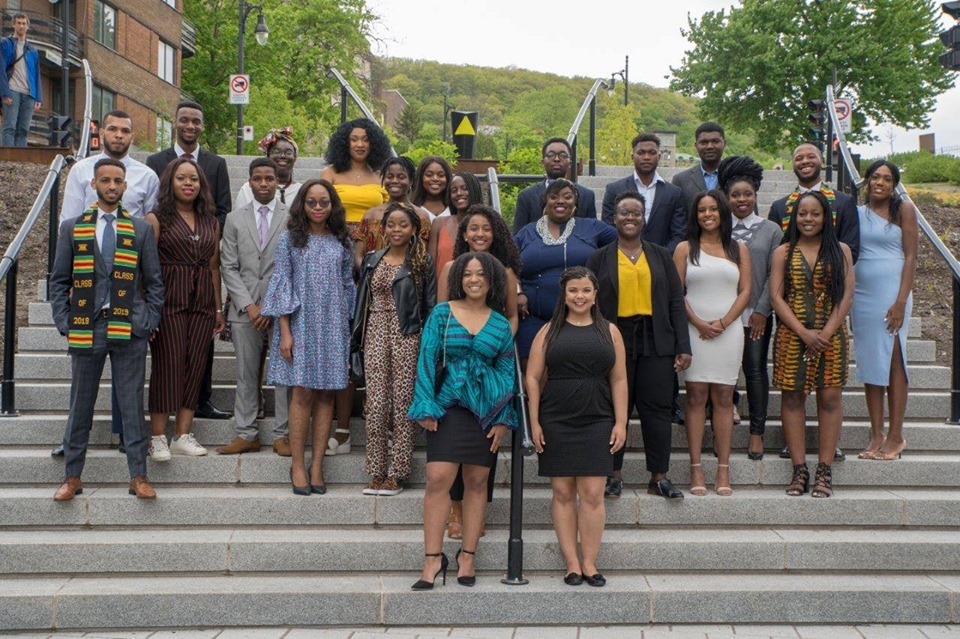On May 29, the Black Students’ Network of McGill (BSN) hosted their first annual Black Graduation ceremony. Held in collaboration with the McGill Black Alumni Association (MBAA), the Joint Board-Senate Committee on Equity (JBSCE), and the Subcommittee on Racialized and Ethnic Persons (REP), the event aimed to foster community and celebrate the achievements of Black graduates. In addition to the ceremony, the BSN launched a Seeds of Change campaign to aid in current and future commemoration ceremonies. At the ceremony, Christelle Tessono, U3 Arts and outgoing President of BSN, explained the role of Black Grad in supporting Black achievements.
“The purpose of Black Grad is to celebrate historical, but also contemporary achievements from Black students,” Tessono said. “We really want to emphasize that we have a long history at McGill. […We want] to assert our space on campus […and] we believe in the celebration of [Black] successes and our history.”
Other universities in Canada, like the University of Toronto (U of T), hold similar Black graduation celebrations. U of T held its first Black graduation ceremony in June 2017, following the example of Harvard University and others in the United States. When Tessono came to McGill, she did not find the same type of ceremony on campus, prompting her to use her platform as BSN President to organize the event.
“Black Grad is a testimonial to and recognition of these struggles as well as a celebration of these graduates who have, against all odds, not only surmounted these obstacles, but now are ready to lead and inspire others,” a statement from the BSN read.
Some have expressed disdain toward similar ceremonies at Harvard and U of T via social media, stating that they are too exclusive. Tessono expressed how Black Grad is not restrictive nor a form of segregation, but instead a public and inclusive celebration of Black legacies at McGill.
“[Black Grad] is not a seperate celebration,” Tessono said. “It is [in addition] to the events happening at convocation [….] We are not trying to separate ourselves, we are celebrating and commemorating our history.”
The graduation celebration included speeches from Christelle Dosa, the president of the MBAA; and Heldden Byumvuhore, community organizer at Project Genesis. Dr. Adelle Blackett, professor of law and McGill Canada research chair in transnational labour law and development, delivered a speech and introduced the keynote speaker, Dr. Dorothy Williams, PhD’16; Dr. Williams is a historian and educator specializing in Black Canadian history. Brittany Williams, BCL/LLB ‘19 and class valedictorian, also addressed the crowd.
During the ceremony, the BSN announced that Andreann Asibey, BA ’19, and former Student’s Society of McGill University (SSMU) Equity Commissioner, former BSN President (2017-2018), and outgoing McGill African Students’ Society (MASS) President, would be the inaugural recipient of the Mariame Kaba Prize in Leadership & Community Service. The award honours Mariame Kaba, a McGill University graduate, educator, activist and founder of multiple organizations like Project NIA, Chicago Freedom School, and Chicago Taskforce on Violence Against Girls and Young Women. Recipient of this award receive a minimum of $1,000 in recognition of their commitment to community service. Mohammed Odusanya, U3 Arts and outgoing Advocacy Coordinator at the BSN, expressed the importance of creating space to honor Black students and their achievements.
“We wanted to celebrate the accomplishments of Black students,” Odusanya said. “[…] The reason why we felt like it was important to highlight, because, at convocation […] you don’t always see [accomplishments] like social justice commitments or [community building] being awarded or celebrated by any academic institution.”
With McGill’s bicentennial celebration next year, Tessono believes that McGill should prioritize commemorations of Black history, and to address the systemic factors which may limit the enrolment and success of Black communities at McGill, to improve for the future. Additionally, Tessono explains that Montreal’s Black communities are not adequately represented at McGill.
“[McGill’s bicentennial] is a great opportunity to start [putting Black students] on the agenda,” Tessono said. “[McGill should] collect data on the number of Black students they have [….] We want more scholarships, more community involvement, [and] more enrolment from Black students at McGill, even from Montreal.”








